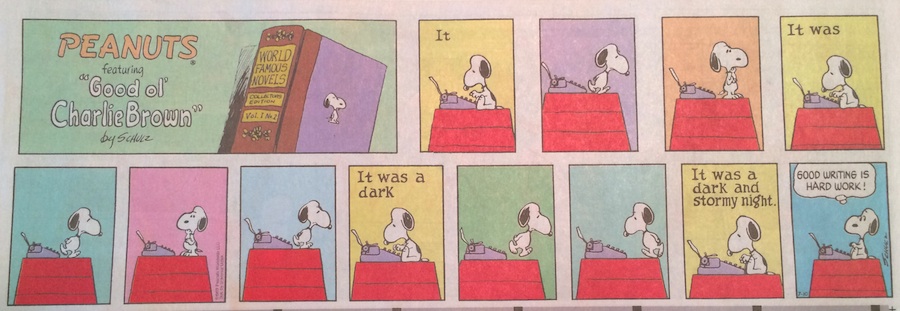All kidding aside, I'm thankful that we have a nice home, pretty good health, not a great deal of worry about financial matters, a healthy and happy family and a lot of memories of things we have done and people we have known.
Of course, many of my memories include the many students and colleagues it has been my privilege to have taught and worked with during close to fifty years in educational theatre. In many ways, I think of them as being a part of my family, too. Yes, I know that those early morning classes (there were a lot of them, weren't there?) were not always very exciting, but I hope they (and those "boring" theatre history and lit./crit. classes) contributed to providing some of the tools which did, or will, be helpful in the future. I've always thought that it wasn't enough just to acquire the specific, technical skills one can get from acting, directing and design classes, but that it was important to have a sense of where our art came from and how the problems of that art have been viewed and solved in the past so that one can use that to help solve them in the present. That's not to say that we can't find new solutions, but that new solutions can be built on those of the past. The more we know about the past, the better solutions we can find for dealing with today's productions.
I guess that means that I am thankful for having the time, and the opportunity, to spend much of my life learning about the things I enjoy and think are important. That includes MANY things, but especially has to include almost anything about Shakespeare and Elizabethan/Jacobean theatre and drama, although I have always considered all theatre/drama as my field of interest. I also am thankful that in retirement I now have the time to pursue other interests too; like well-written mysteries, especially Sherlock Holmes, but I have a number of other authors whose work I enjoy as well. Why mysteries? I think it’s because they make me think, which, I'd like to believe, helps me to keep my mind reasonably sharp as I try to get ahead of the author. Occasionally, I'm even able to do that.
Most of all, I suppose, I'm thankful that I now have the time to just think and express myself occasionally in what I hope are fairly well thought out mini essays which I'd like to believe may be of some interest to some of my family, friends, colleagues and former students. I think that if I can, occasionally, amuse, annoy, or stimulate, I’m still making a contribution to the greater good. I don't ask that everyone always agree with me, but, whether they do, or not, if I can encourage folks to think a bit about those things I think are important or useful, then I believe it's worthwhile to keep doing the kind of thing I hoped to do in my working days: prodding, poking, stimulating, encouraging folks not to just recite facts, but try to understand why they were important and/or relevant. That’s what I loved about teaching.
And every so often, it’s nice to take a moment to stop and think of the good things in so many of our lives. Life, after all, is a lot like the theatre. Where theatre is the pursuit of perfection while knowing that it’s not going to be achieved, life is the pursuit of happiness, knowing that we won’t always achieve it. The really important point, I think, is to appreciate it for what it is.
I hope you had a great Thanksgiving and many more to come.
LLAP

 RSS Feed
RSS Feed